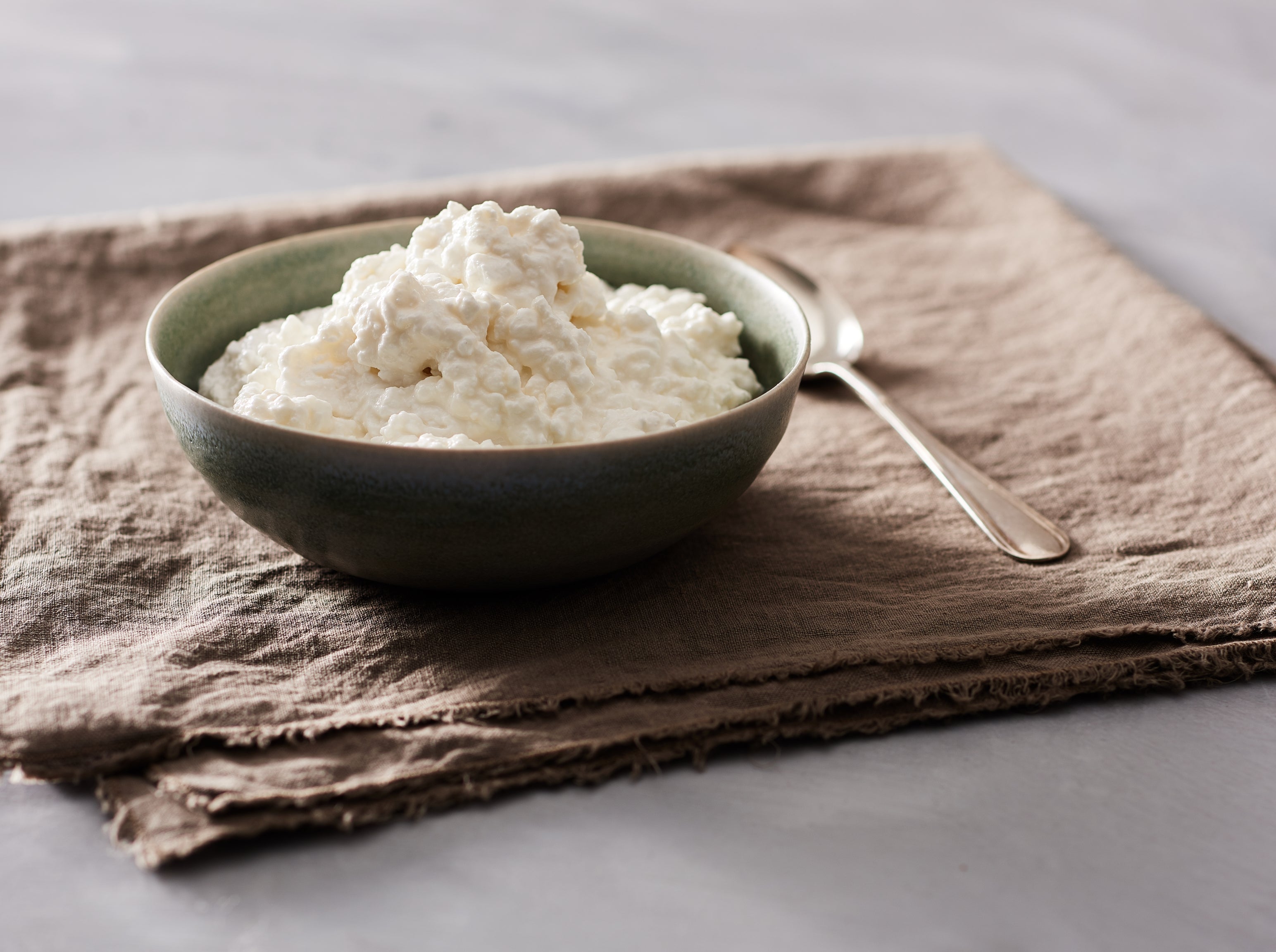What is Cottage Cheese?
Cottage cheese is a fresh, soft, and creamy cheese that is made by curdling milk. The process involves separating the curds (solid part) from the whey (liquid part) of milk. This results in a cheese-like product that has a unique texture and a mildly tangy flavor.
Cottage cheese has been a staple in many households for decades, and it has long been praised for its nutritional benefits. It is often considered a healthy choice, particularly for those looking to increase their protein intake, trying body transformation or manage their weight. However, not all cottage cheese products are created equal, and it's important to understand the nuances of this versatile dairy product.
One of the defining characteristics of cottage cheese is its texture. Unlike other types of cheese that are aged and have a firm, solid structure, cottage cheese has a soft, creamy, and slightly grainy consistency. This texture is achieved by gently heating and curdling the milk, which allows the curds to maintain their individual shape and size. The curds are then rinsed and drained, leaving behind a fresh, moist cheese that is often described as having a "cottage-like" appearance.
Nutritional Benefits of Cottage Cheese
Cottage cheese is widely recognized for its impressive nutritional profile. It is an excellent source of high-quality protein, as well as several essential multivitamins and minerals. Let's delve deeper into the key nutritional benefits of this dairy product.
Protein Content in Cottage Cheese
One of the primary reasons why cottage cheese is so highly regarded is its high protein content. A single serving of cottage cheese (about 1/2 cup or 100 grams) can provide up to 11 grams of protein. This makes cottage cheese an excellent choice for individuals who are looking to increase their protein intake, whether it's for muscle building, weight management, or overall health.
The protein in cottage cheese is primarily composed of casein, a slow-digesting protein that can help promote feelings of fullness and satiety. This can be particularly beneficial for those trying to manage their weight loss or curb their appetite between meals. Additionally, the high-quality protein in cottage cheese can support muscle recovery and growth, making it a popular choice among athletes and fitness enthusiasts.
Calcium and Bone Health
Cottage cheese is also an excellent source of calcium, a essential mineral that plays a crucial role in maintaining strong and healthy bones. A single serving of cottage cheese can provide up to 14% of the recommended daily intake of calcium.
Calcium is vital for the development and maintenance of bone density, which is particularly important as we age. By incorporating cottage cheese into your diet, you can help support your bone health and potentially reduce the risk of conditions like osteoporosis
Furthermore, cottage cheese is also a good source of vitamin D, another crucial nutrient for bone health. Vitamin D helps the body absorb and utilize calcium more effectively, further enhancing the bone-strengthening benefits of cottage cheese.
Cottage Cheese and Weight Loss
In addition to its protein and calcium content, cottage cheese is also often touted as a weight-loss-friendly food. This is primarily due to its low calorie and fat content, as well as its ability to promote feelings of fullness and satiety.
A single serving of cottage cheese typically contains around 100-120 calories, making it a relatively low-calorie option compared to many other dairy products. Additionally, cottage cheese is naturally low in fat, with just 2-5 grams of fat per serving, depending on the specific brand and type.
The high protein content of cottage cheese can also be beneficial for weight management. Protein has been shown to increase feelings of fullness and reduce hunger, which can help individuals feel more satisfied and less likely to overeat. This can be particularly helpful for those trying to lose weight or maintain a healthy weight.
Cottage Cheese and Muscle Recovery
Beyond its weight management benefits, cottage cheese can also be a valuable ally for those looking to support muscle recovery and growth. As mentioned earlier, cottage cheese is an excellent source of high-quality protein, which is essential for repairing and rebuilding muscle tissue after exercise.
The slow-digesting casein protein in cottage cheese can help provide a steady supply of amino acids to the muscles, promoting muscle protein synthesis and supporting the recovery process. This makes cottage cheese a particularly useful post-workout snack or ingredient for those who are actively engaged in strength training or other forms of exercise.
Additionally, cottage cheese contains a range of other nutrients that can support muscle health, such as vitamin B12 and phosphorus. These nutrients play important roles in energy production, muscle contraction, and overall muscle function.
By incorporating cottage cheese into your post-workout routine or as a snack throughout the day, you can help support the repair and growth of your muscle tissue, ultimately enhancing your athletic performance and recovery.
Cottage Cheese and Gut Health
Interestingly, cottage cheese may also offer benefits for gut health. While the research in this area is still emerging, some studies suggest that cottage cheese may contain probiotic properties that can support a healthy gut microbiome.
The fermentation process used to make cottage cheese can result in the production of beneficial bacteria, such as lactic acid bacteria. These probiotics can help maintain a balanced gut flora, which is essential for optimal digestion, nutrient absorption, and overall gut health.
Additionally, cottage cheese is a good source of the mineral selenium, which has been linked to improved gut function and reduced inflammation in the digestive system. Selenium plays a crucial role in the health and function of the gut lining, which can help prevent the development of conditions like leaky gut syndrome.
By incorporating cottage cheese into your diet, you may be able to support the health and diversity of your gut microbiome, potentially leading to improved digestion, reduced inflammation, and enhanced overall well-being.
Cottage Cheese and Heart Health
Cottage cheese may also offer benefits for heart health, thanks to its unique nutritional profile. While dairy products have historically been associated with an increased risk of heart disease due to their saturated fat content, emerging research suggests that cottage cheese may actually have a positive impact on cardiovascular health.
One of the key factors contributing to cottage cheese's heart-healthy properties is its relatively low saturated fat content. Compared to other dairy products, such as full-fat cheese or butter, cottage cheese is generally lower in saturated fat, which has been linked to an increased risk of heart disease and high cholesterol.
Moreover, cottage cheese is a good source of nutrients that have been shown to support cardiovascular health, such as protein, calcium, and vitamin B12. These nutrients can help regulate blood pressure, improve blood lipid profiles, and reduce inflammation – all of which are important for maintaining a healthy heart.
Additionally, some studies have suggested that the probiotics found in cottage cheese may also play a role in promoting heart health. These beneficial bacteria can help reduce inflammation, improve cholesterol levels, and even support the health of the blood vessels.
How to Incorporate Cottage Cheese into Your Diet
With its versatile nature and impressive nutritional profile, cottage cheese can be easily incorporated into a wide variety of dishes and snacks. Here are some ideas for incorporating cottage cheese into your diet:
BREAKFAST
- Mix cottage cheese with fresh fruit, such as berries, peaches, or pineapple, for a nutrient-dense breakfast.
- Use cottage cheese as a topping for whole-grain toast or oatmeal, adding flavor and protein.
- Blend cottage cheese with eggs, spinach, and herbs for a protein-packed frittata or quiche.
SNACKS
- Enjoy cottage cheese with crackers, sliced vegetables, or a sprinkle of nuts and seeds for a satisfying snack.
- Create a sweet treat by mixing cottage cheese with a touch of honey, cinnamon, and fresh fruit.
- Use cottage cheese as a dip for fresh vegetables or whole-grain pita chips.
LUNCH & DINNER
- Add cottage cheese to salads, wraps, or sandwiches for an extra boost of protein and creaminess.
- Incorporate cottage cheese into pasta dishes, such as lasagna or macaroni and cheese, for a nutritious twist.
- Use cottage cheese as a topping for baked potatoes or as a filling for stuffed mushrooms or peppers.
DESSERTS
- Blend cottage cheese with fresh or frozen fruit, a touch of honey, and a sprinkle of cinnamon for a healthy dessert or snack.
- Use cottage cheese as a substitute for ricotta in cheesecake or other creamy desserts.
- Mix cottage cheese with cocoa powder, vanilla extract, and a sweetener of your choice for a protein-packed chocolate mousse.
- By incorporating cottage cheese into your meals and snacks, you can take advantage of its impressive nutritional benefits and enjoy its versatile flavor and texture.
Conclusion
In conclusion, cottage cheese is a nutritious and versatile dairy product that deserves its health-conscious reputation. With its high protein content, calcium, and various other essential nutrients, cottage cheese can offer a wide range of health benefits, from supporting muscle recovery and bone health to potentially promoting weight management and cardiovascular well-being.
While not all cottage cheese products are created equal, choosing high-quality, minimally processed brands can help you maximize the nutritional value and health benefits of this dairy staple. By incorporating cottage cheese into your diet in a variety of ways, you can enjoy its delicious flavor and creamy texture while nourishing your body and supporting your overall well-being.
So, if you're looking to add a nutritious and versatile ingredient to your diet, consider giving cottage cheese a try. Whether you enjoy it as a snack, incorporate it into your meals, or use it in your favorite recipes, cottage cheese can be a valuable addition to a healthy, balanced lifestyle.











Leave a comment